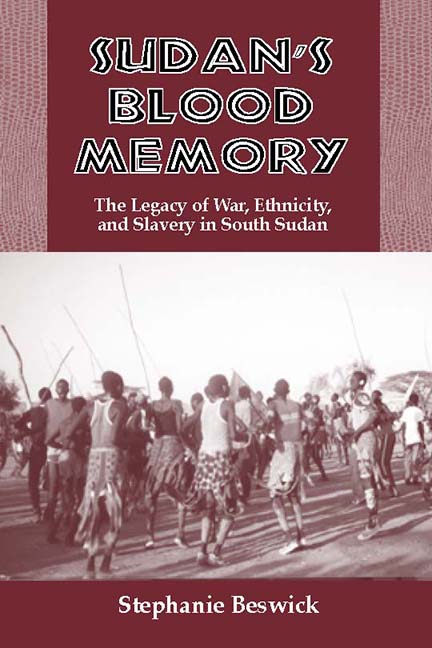Book contents
- Frontmatter
- Dedication
- Contents
- Maps
- Preface
- Acknowledgments
- A Note on Orthography and Languages
- A Note on Sources
- Map
- 1 Introduction
- 2 Geography and Brief History of Sudan
- 3 The Changing Nilotic Frontier
- The Ethno-Historical Formation of Southern Sudan
- The Ascendancy of the Dinka in Southern Sudan
- 9 Grain, Cattle, and Economic Power
- 10 Totemic Religion
- 11 Human Sacrifice, Virgins, and River Spirits
- 12 Priests, Politics, and Land
- 13 Ethnic Expansion by Marriage
- 14 Sovereign Nations within the Dinka
- Foreign Intrusion and Its Consequences
- Notes
- Glossary
- Bibliography
- Index
12 - Priests, Politics, and Land
from The Ascendancy of the Dinka in Southern Sudan
Published online by Cambridge University Press: 23 July 2019
- Frontmatter
- Dedication
- Contents
- Maps
- Preface
- Acknowledgments
- A Note on Orthography and Languages
- A Note on Sources
- Map
- 1 Introduction
- 2 Geography and Brief History of Sudan
- 3 The Changing Nilotic Frontier
- The Ethno-Historical Formation of Southern Sudan
- The Ascendancy of the Dinka in Southern Sudan
- 9 Grain, Cattle, and Economic Power
- 10 Totemic Religion
- 11 Human Sacrifice, Virgins, and River Spirits
- 12 Priests, Politics, and Land
- 13 Ethnic Expansion by Marriage
- 14 Sovereign Nations within the Dinka
- Foreign Intrusion and Its Consequences
- Notes
- Glossary
- Bibliography
- Index
Summary
Although the act of human sacrifice was deemed critical to the survival of the various Dinka clans as they migrated into Southern Sudan, oral histories suggest that it was the religious leaders, the priests, who played the most crucial role during these journeys. They spearheaded migrations, legitimized control over those foreign territories into which the people migrated, and capitalized on their knowledge of statecraft to gain control over the previous residents of the land. Scholars suggest that weak political systems coupled with ecological crises allow external control by religious leadership. I believe that Dinka priests did indeed follow this model as they led their numerous clans deep into the heartlands of Southern Sudan.
Aristocratic Clans and the Role of Priests in Dinka Migrations
Since the earliest arrival of the Dinka in Southern Sudan there has developed two classes of people: the aristocratic and the commoner clans. The former, believed to represent those original Dinka who migrated from central Sudan, claim that their first priest/leader was Aiwel. He is believed to have passed on his “divine” powers to certain members of his descendants by way of the divinity or Ring (flesh).
In modern times Ghol Dinka Barnaba Wuor and Samuel Majak Piok explain how a person becomes a priest:
Spiritual power begins when power falls on a person. He will call on people and tell them his prophecy and when it happens he is considered to be endowed with this power. For example, he may say “in a few days an elephant will come. Prepare yourself.” Then the elephant comes. Then a few days later another problem comes true and the people are convinced he has power. Or if a person is sick, he says God is unhappy, you must do so and so…. They do [it] and get well and the person is then considered powerful. But he cannot kill anyone with magic.
However, the priest himself always has a warning that he has received power from his ancestors and in Dinka culture dreams have paramount importance. They are often the first step to recognizing one's priestly prominence.
- Type
- Chapter
- Information
- Sudan's Blood Memory , pp. 124 - 133Publisher: Boydell & BrewerPrint publication year: 2004

